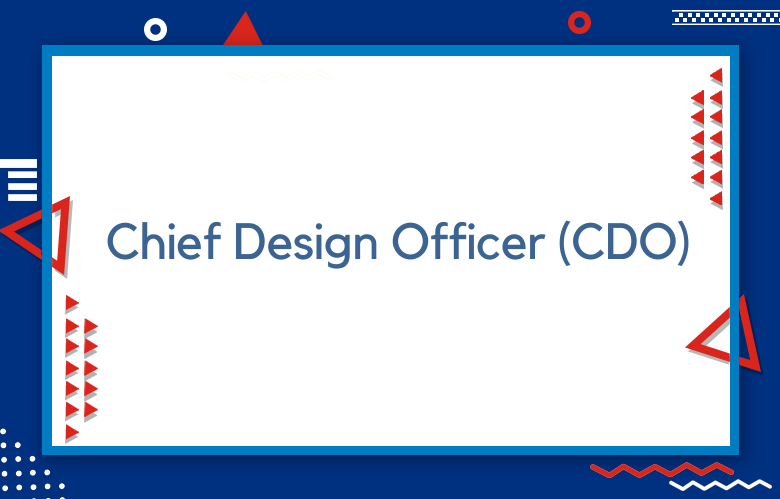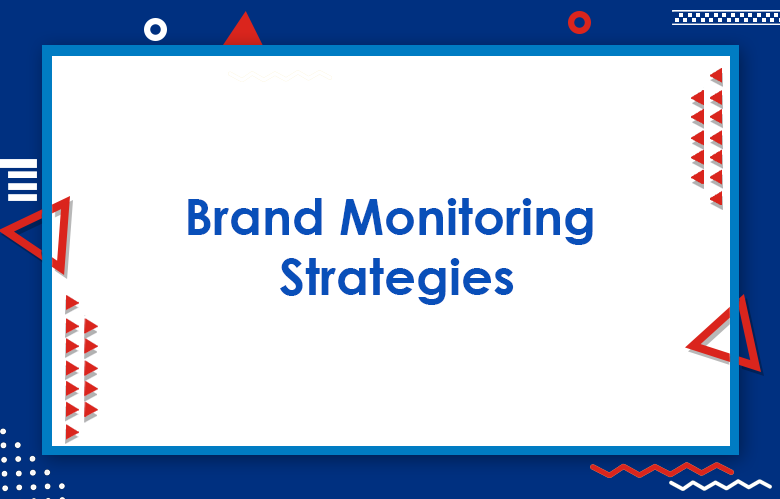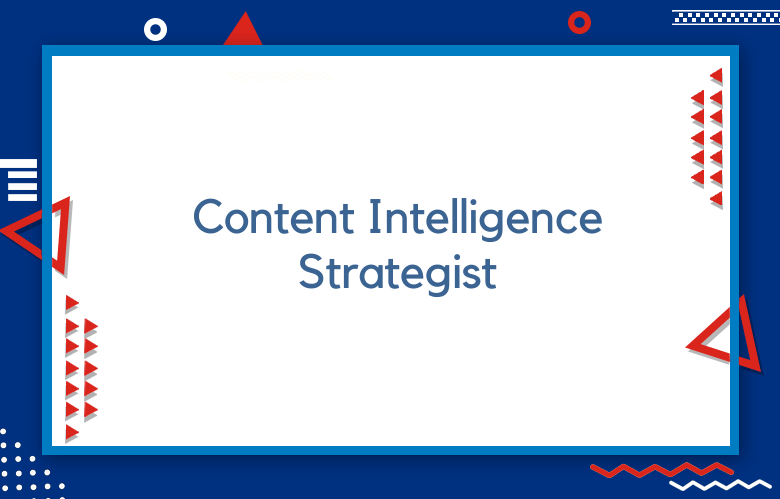Chief Talent Officer (CTO) Role and Responsibilities

The Chief Talent Officer (CTO) is a senior executive responsible for leading the organization’s human resources strategy and overseeing the organization’s talent management, recruitment, and employee development initiatives.
The CTO plays a critical role in the organization’s overall success by ensuring that the organization has the talent and skills it needs to achieve its strategic objectives.
Chief Talent Officer (CTO) Role and Responsibilities
The CTO must possess strong leadership, communication, and human resources management skills and a deep understanding of the organization’s business strategy and goals.
The CTO must also have experience developing and implementing human resources strategies, leading teams, and using analytics to measure and optimize human resources programs and initiatives.
By developing and implementing a comprehensive human resources strategy, leading the human resources team, managing talent management, recruitment, and compensation and benefits initiatives, and ensuring compliance with all applicable laws and regulations, the CTO ensures that the organization has the talent and skills it needs to achieve its strategic objectives and create long-term value for all stakeholders. Overall, the CTO is a strategic leader who plays a critical role in driving organizational success through effective human resources management.
The CTO’s key responsibilities include:
Developing and implementing the organization’s human resources strategy aligns with the overall business strategy and supports the organization’s goals and objectives.
Leading the human resources team, including human resources generalists, recruiters, compensation and benefits specialists, and other human resources professionals.
Overseeing the organization’s talent management initiatives, including performance management, employee development, and succession planning.
Leading the organization’s recruitment efforts, including developing recruitment strategies and processes, identifying talent needs, and sourcing and recruiting top talent.
Managing the organization’s compensation and benefits programs, including developing and administering compensation and benefits policies and programs that support the organization’s talent management objectives.
Ensuring compliance with all applicable laws and regulations related to human resources, including employment laws and regulations, and developing and implementing policies and procedures to support effective human resources management.
Staying up to date on industry trends and best practices in human resources management.
Unleashing the Power of Human Capital: The Essential Role of a Chief Talent Officer
The CTO’s responsibilities include developing and implementing a comprehensive talent strategy that aligns with the organization’s overall business objectives, leading the talent management team, overseeing the recruitment and selection process, developing and implementing training and development programs, monitoring and analyzing talent metrics, collaborating with other departments, developing and implementing policies and procedures, and staying up to date on industry trends and best practices in talent management.
By developing and executing a comprehensive talent strategy, leading the talent management team, and ensuring that the organization has the right people with the right skills in the right places at the right time, the CTO helps the organization achieve its strategic objectives and create long-term value for all stakeholders. The CTO’s role is critical in today’s fast-paced, competitive business environment, where attracting, developing, and retaining top talent is essential for success.
The Talent Guru: Navigating the Responsibilities of a Chief Talent Officer
The Chief Talent Officer (CTO) is a strategic leader who plays a critical role in driving organizational success by managing and optimizing the organization’s most valuable asset: its people. The CTO is responsible for developing and executing a comprehensive talent strategy that supports the organization’s overall business objectives, drives growth and success, and creates a competitive advantage.
By developing and executing a comprehensive talent strategy, leading the talent management team, overseeing talent acquisition, talent development, and talent analytics, collaborating with other departments, developing and implementing policies and procedures, and staying up to date on industry trends and best practices, the CTO ensures that the organization has the right people, with the right skills, in the right places at the right time. This helps the organization achieve its strategic objectives and create long-term value for all stakeholders.
Taming the Talent Storm: A Chief Talent Officer’s Guide to Success
The role of a Chief Talent Officer (CTO) is becoming increasingly important in today’s business landscape as organizations recognize talent’s critical role in driving success. The CTO is responsible for developing and executing a comprehensive talent strategy that supports the organization’s overall business objectives and drives growth and success.
The CTO’s role is critical in today’s fast-paced, competitive business environment, where attracting, developing, and retaining top talent is essential for success. The CTO must be a strategic leader who understands the organization’s business strategy and goals and can develop and implement talent strategies that support those objectives.
To be successful in this role, the CTO must possess strong leadership, communication, and talent management skills. The CTO must also have experience in developing and implementing talent strategies, leading talent management teams, and using analytics to measure and optimize talent management programs and initiatives.
From HR to CTO: The Evolution of Talent Management Leadership
The role of a Chief Talent Officer (CTO) has evolved significantly over the years as organizations have come to recognize the critical importance of talent management in driving success. The CTO’s role is no longer limited to traditional human resources functions, such as recruitment and benefits administration, but rather encompasses a broader range of responsibilities, including developing and executing a comprehensive talent strategy.
In the past, human resources (HR) was often viewed as a transactional function focused on administrative tasks such as processing paperwork, managing employee benefits, and handling compliance issues. However, as organizations have become more competitive and global, the role of HR has evolved to focus more on strategic talent management, including recruitment, development, and retention of top talent.
The Talent Whisperer: How a Chief Talent Officer Drives Organizational Success
In today’s business landscape, organizations recognize talent’s critical role in driving success. As a result, the Chief Talent Officer (CTO) role is becoming increasingly important. The CTO is responsible for developing and executing a comprehensive talent strategy that supports the organization’s overall business objectives, drives growth and success, and creates a competitive advantage.
The CTO’s role has evolved over time from a focus on traditional HR functions such as recruiting and onboarding to a more strategic role that involves developing and executing a comprehensive talent strategy. The CTO must be a strategic leader who understands the organization’s business strategy and goals and who has the ability to develop and implement talent strategies that support those objectives.
Balancing Act: The Skillset Required for a Chief Talent Officer Role
The Chief Talent Officer (CTO) role requires a unique blend of skills and competencies that enable the CTO to effectively lead talent management initiatives and drive organizational success. The CTO must be able to balance strategic thinking with operational execution and must possess a deep understanding of both the organization’s business strategy and the talent management function.
Some of the key skills and competencies required for the CTO role include:
Strategic thinking
The CTO must be able to develop and execute a comprehensive talent strategy that aligns with the organization’s overall business objectives.
Leadership
The CTO must be able to lead and inspire the talent management team and must be able to collaborate effectively with other departments to achieve organizational goals.
Talent management expertise
The CTO must have a deep understanding of talent management functions, including recruitment, selection, development, and retention.
Analytical thinking
The CTO must be able to use data and analytics to inform talent strategy and measure the effectiveness of talent management initiatives.
Communication
The CTO must be able to communicate effectively with stakeholders at all levels of the organization, and must be able to influence and persuade others to support talent management initiatives.
Change management
The CTO must be able to led and manage change and must be able to adapt to changing business needs and market conditions.
Business acumen
The CTO must have a deep understanding of the organization’s business strategy and goals and must be able to align talent management initiatives with those objectives.
Technology savvy
The CTO must be comfortable using technology to manage talent and must be able to leverage technology to streamline talent management processes.
Ethics and integrity
The CTO must be committed to ethical behavior and must be able to uphold the highest standards of integrity and professionalism.
By possessing these skills and competencies, the CTO is better equipped to develop and execute a comprehensive talent strategy that supports the organization’s overall business objectives, drives growth and success, and creates a competitive advantage.
Conclusion
The Chief Talent Officer (CTO) plays a critical role in modern organizations and is responsible for developing and executing a comprehensive talent strategy that supports the organization’s overall business objectives and drives growth and success. The CTO plays a key role in ensuring that the organization has the right people with the right skills in the right places at the right time.
The CTO’s responsibilities include leading the talent management team, overseeing the recruitment and selection process, developing and implementing training and development programs, monitoring and analyzing talent metrics, collaborating with other departments, developing and implementing policies and procedures, and staying up to date on industry trends and best practices in talent management.



